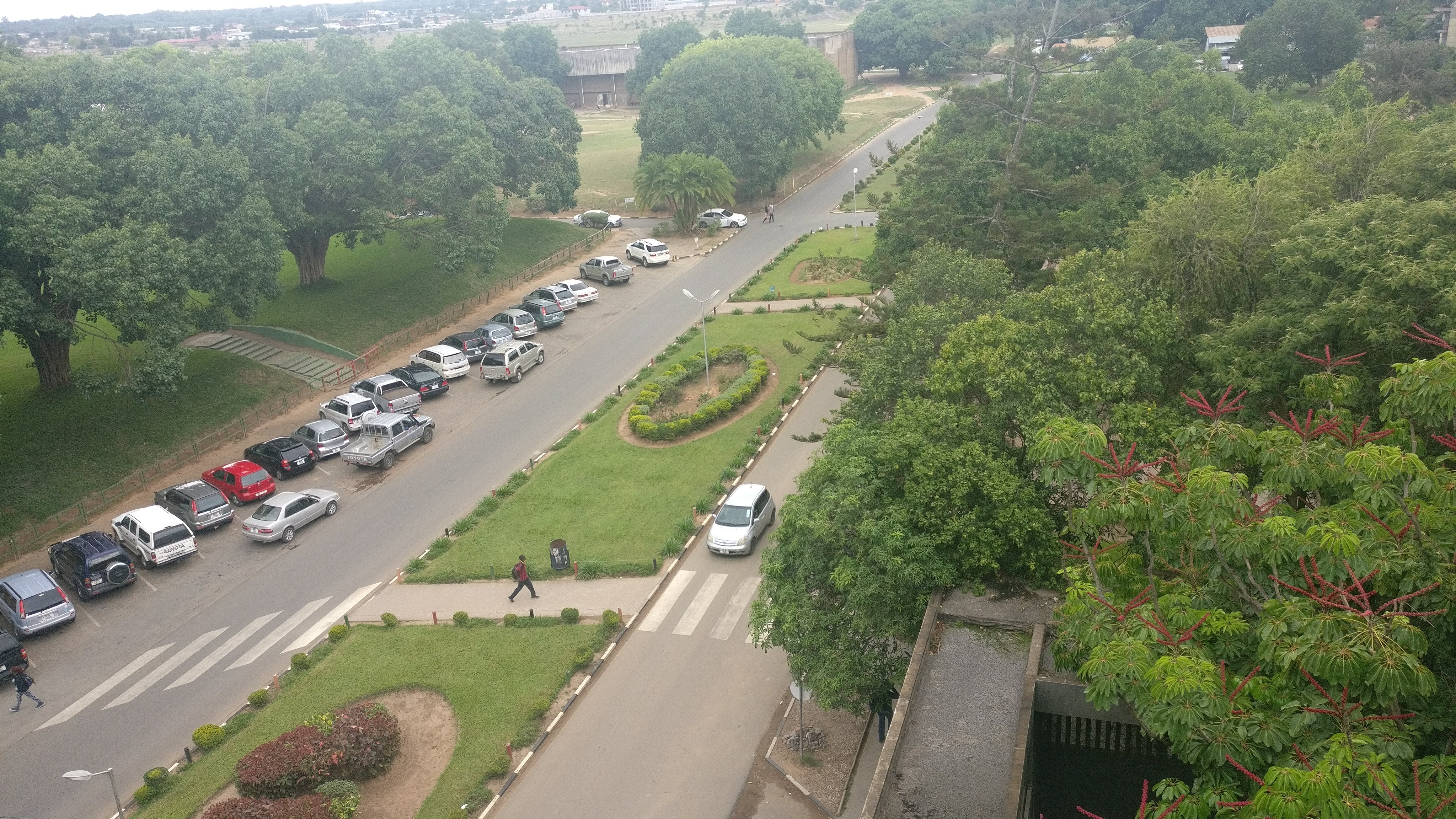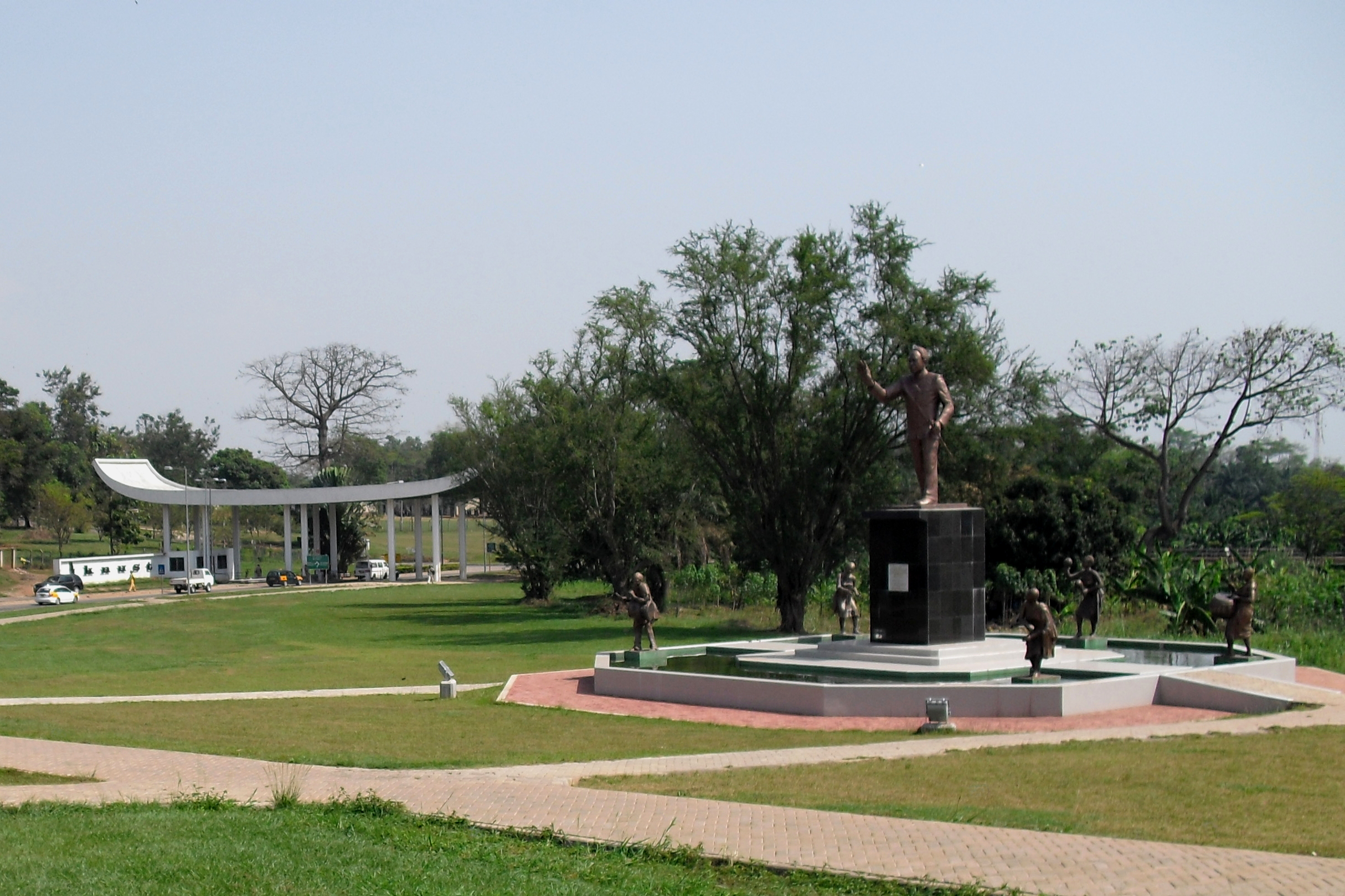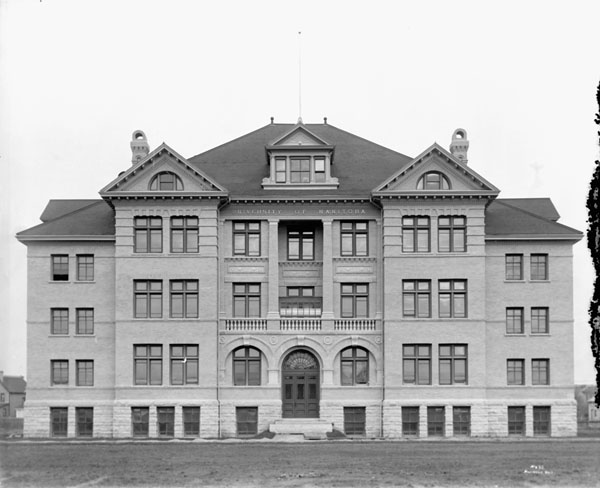|
Judith Ngalande Lungu
Dr. Judith Ngalande Lungu is a Livestock Production Specialist and seasoned academician with over 30 years of experience in the field, having held various academic positions in various capacities at University of Zambia (UNZA), Mulungushi University, Kwame Nkrumah University of Science and Technology, Kwame Nkurumah University and Botswana University of Agriculture and Natural Resources, Botswana College of Agriculture. Education She was admitted to the University of Zambia (UNZA), graduating with a Bachelor of Science in Agricultural Sciences. She obtained a Master of Science degree at the University of Massachusetts and completed her Doctoral degree at the University of Manitoba. Her thesis was on "The effect of time of feeding on time of parturition and on steroid profiles during the last month of pregnancy in the ewe." Career She served as a senior lecturer at UNZA for 25 years from 1986 to 2011. She was the Head of the Animal Science Department and also served as the Dean ... [...More Info...] [...Related Items...] OR: [Wikipedia] [Google] [Baidu] |
University Of Zambia
The University of Zambia (UNZA) is a public university located in Lusaka, Zambia. It is Zambia's largest and oldest learning institution. The university was established in 1965 and officially opened to the public on 12 July 1966. The language of instruction is English. History The beginnings of UNZA can be traced back to before the Second World War when the idea to establish a University in Northern Rhodesia was conceived. However, plans were halted when the war broke out and only revived after. The colonial government instituted plans to set up a Central African University College, for Africa, due to the development of higher education institutions in most parts of Africa. The Central Africa council (CAC) appointed a committee to investigate requirements for a college for higher education and, it subsequently recommended that a college for higher education be established. A subsequent investigation into the need for higher education for Africans in Central Africa was conducted b ... [...More Info...] [...Related Items...] OR: [Wikipedia] [Google] [Baidu] |
Mulungushi University
Mulungushi University is one of the public universities of Zambia. Previously known as the National College of Management and Development Studies, it was turned into a university by the Zambian Government in a public-private partnership with Konkola Copper Mines in 2008. The university consists of three campuses: the Main Campus, or Great North Road Campus, located 26 kilometers North of Kabwe on the banks of the Mulungushi River; the Town Campus, located along Mubanga Road, off Munkoyo Street, near the center of Kabwe town; and the Livingstone Campus, located in Livingstone, which is home to the medical school. The university provides bachelor's degrees and master's degrees for full-time and distance education. In 2009, more than 500 distance education students enrolled. They were mainly former diploma students of the National College for Management and Development Studies. The Main (Great North Road) Campus is located near the Mulungushi Rock of Authority, a kopje often called ... [...More Info...] [...Related Items...] OR: [Wikipedia] [Google] [Baidu] |
Kwame Nkrumah University Of Science And Technology
, mottoeng = The knot of wisdom is untied only by the wise , established = 1952; History of Kwame Nkrumah University of Science and Technology Retrieved 2009-10-29. , type = , endowment = , chairman = , chancellor = King Osei Tutu II () , vice_chancel ... [...More Info...] [...Related Items...] OR: [Wikipedia] [Google] [Baidu] |
Botswana University Of Agriculture And Natural Resources
Botswana University of Agriculture and Natural Resources (BUAN) formally known as Botswana College of Agriculture (BCA) is an agricultural University located in Gaborone, Botswana. History It was established by an act of the Parliament of Botswana The Parliament of Botswana consists of the President and the National Assembly. In contrast to other Parliamentary systems, the Parliament elects the President directly (instead of having both a ceremonial President and a Prime Minister who h ..., Act no. 12 of 2015 as a Parastatal under the Ministry of Agricultural Development and Food Security (MoA). The process of transformation was inaugurated when the, then Ministry of Agriculture announced the Government's decision at a ceremony at the Sebele campus on the 12th of November 2013. On the 1st of February 2016, BUAN became a University through the commencement of the Act of Parliament 12 of 2015 as a Parastatal under the Ministry of Agricultural Development and Food Security ... [...More Info...] [...Related Items...] OR: [Wikipedia] [Google] [Baidu] |
Bachelor Of Science
A Bachelor of Science (BS, BSc, SB, or ScB; from the Latin ') is a bachelor's degree awarded for programs that generally last three to five years. The first university to admit a student to the degree of Bachelor of Science was the University of London in 1860. In the United States, the Lawrence Scientific School first conferred the degree in 1851, followed by the University of Michigan in 1855. Nathaniel Southgate Shaler, who was Harvard's Dean of Sciences, wrote in a private letter that "the degree of Bachelor of Science came to be introduced into our system through the influence of Louis Agassiz, who had much to do in shaping the plans of this School." Whether Bachelor of Science or Bachelor of Arts degrees are awarded in particular subjects varies between universities. For example, an economics student may graduate as a Bachelor of Arts in one university but as a Bachelor of Science in another, and occasionally, both options are offered. Some universities follow the Oxfor ... [...More Info...] [...Related Items...] OR: [Wikipedia] [Google] [Baidu] |
University Of Manitoba
The University of Manitoba (U of M, UManitoba, or UM) is a Canadian public research university in the province of Manitoba.''University of Manitoba Act'', C.C.S.M. c. U60. Retrieved on July 15, 2008 Founded in 1877, it is the first of . Both by total student enrolment and campus area, the U of M is the largest university in the province of Manitoba and the 17th-largest in all of Canada. Its main campus is located in the |
Library And Archives Canada
Library and Archives Canada (LAC; french: Bibliothèque et Archives Canada) is the federal institution, tasked with acquiring, preserving, and providing accessibility to the documentary heritage of Canada. The national archive and library is the fifth largest library in the world. The LAC reports to the Parliament of Canada through the Minister of Canadian Heritage. The LAC traces its origins to the Dominion Archives, formed in 1872, and the National Library of Canada, formed in 1953. The former was later renamed as the Public Archives of Canada in 1912, and the National Archives of Canada in 1987. In 2004, the National Archives of Canada and the National Library of Canada were merged to form Library and Archives Canada. History Predecessors The Dominion Archives was founded in 1872 as a division within the Department of Agriculture tasked with acquiring and transcribing documents related to Canadian history. In 1912, the division was transformed into an autonomous organ ... [...More Info...] [...Related Items...] OR: [Wikipedia] [Google] [Baidu] |
Forum For African Women Educationalists
The Forum for African Women Educationalists (FAWE) is a pan-African non-governmental organization founded in 1992 by five women ministers of education to promote girls’ and women’s education in sub-Saharan Africa by making sure they have access to schools and are able to complete their studies and fulfill their potential, in line with UNESCO's Education For All movement. The organisation's members include ministers of education, university vice-chancellors, education policy-makers, researchers, gender specialists and human rights activists. It has its secretariat in Nairobi. Currently it has 34 national chapters in 33 countries, including Benin, Gabon, Gambia, Ghana, Guinea, Liberia, Nigeria, Rwanda, Senegal, Sierra Leone, Uganda and Togo among others. It is an International Partner Office for the Ford Foundation International Fellowships Program, and a partner organization of the Association of African Women for Research and Development. Key individual members ... [...More Info...] [...Related Items...] OR: [Wikipedia] [Google] [Baidu] |
Zambian Agriculturalists
Zambia (), officially the Republic of Zambia, is a landlocked country at the crossroads of Central, Southern and East Africa, although it is typically referred to as being in Southern Africa at its most central point. Its neighbours are the Democratic Republic of the Congo to the north, Tanzania to the northeast, Malawi to the east, Mozambique to the southeast, Zimbabwe and Botswana to the south, Namibia to the southwest, and Angola to the west. The capital city of Zambia is Lusaka, located in the south-central part of Zambia. The nation's population of around 19.5 million is concentrated mainly around Lusaka in the south and the Copperbelt Province to the north, the core economic hubs of the country. Originally inhabited by Khoisan peoples, the region was affected by the Bantu expansion of the thirteenth century. Following the arrival of European explorers in the eighteenth century, the British colonised the region into the British protectorates of Barotseland-N ... [...More Info...] [...Related Items...] OR: [Wikipedia] [Google] [Baidu] |
Agriculture Educators
Agriculture or farming is the practice of cultivating Plant, plants and livestock. Agriculture was the key development in the rise of Sedentism, sedentary human civilization, whereby farming of Domestication, domesticated species created food Economic surplus, surpluses that enabled people to live in cities. The history of agriculture began thousands of years ago. After gathering wild grains beginning at least 105,000 years ago, nascent farmers began to plant them around 11,500 years ago. Sheep, goats, pigs and cattle were domesticated over 10,000 years ago. Plants were independently cultivated in at least 11 regions of the world. Industrial agriculture based on large-scale monoculture in the twentieth century came to dominate agricultural output, though about 2 billion people still depended on subsistence agriculture. The major agricultural products can be broadly grouped into Food, foods, Fiber, fibers, fuels, and raw materials (such as Natural rubber, rubber). Food clas ... [...More Info...] [...Related Items...] OR: [Wikipedia] [Google] [Baidu] |
Academic Staff Of The University Of Zambia
An academy ( Attic Greek: Ἀκαδήμεια; Koine Greek Ἀκαδημία) is an institution of secondary or tertiary higher learning (and generally also research or honorary membership). The name traces back to Plato's school of philosophy, founded approximately 385 BC at Akademia, a sanctuary of Athena, the goddess of wisdom and skill, north of Athens, Greece. Etymology The word comes from the ''Academy'' in ancient Greece, which derives from the Athenian hero, ''Akademos''. Outside the city walls of Athens, the gymnasium was made famous by Plato as a center of learning. The sacred space, dedicated to the goddess of wisdom, Athena, had formerly been an olive grove, hence the expression "the groves of Academe". In these gardens, the philosopher Plato conversed with followers. Plato developed his sessions into a method of teaching philosophy and in 387 BC, established what is known today as the Old Academy. By extension, ''academia'' has come to mean the accumulation, de ... [...More Info...] [...Related Items...] OR: [Wikipedia] [Google] [Baidu] |
Zambian Academic Administrators
Zambia (), officially the Republic of Zambia, is a landlocked country at the crossroads of Central, Southern and East Africa, although it is typically referred to as being in Southern Africa at its most central point. Its neighbours are the Democratic Republic of the Congo to the north, Tanzania to the northeast, Malawi to the east, Mozambique to the southeast, Zimbabwe and Botswana to the south, Namibia to the southwest, and Angola to the west. The capital city of Zambia is Lusaka, located in the south-central part of Zambia. The nation's population of around 19.5 million is concentrated mainly around Lusaka in the south and the Copperbelt Province to the north, the core economic hubs of the country. Originally inhabited by Khoisan peoples, the region was affected by the Bantu expansion of the thirteenth century. Following the arrival of European explorers in the eighteenth century, the British colonised the region into the British protectorates of Barotseland-N ... [...More Info...] [...Related Items...] OR: [Wikipedia] [Google] [Baidu] |






